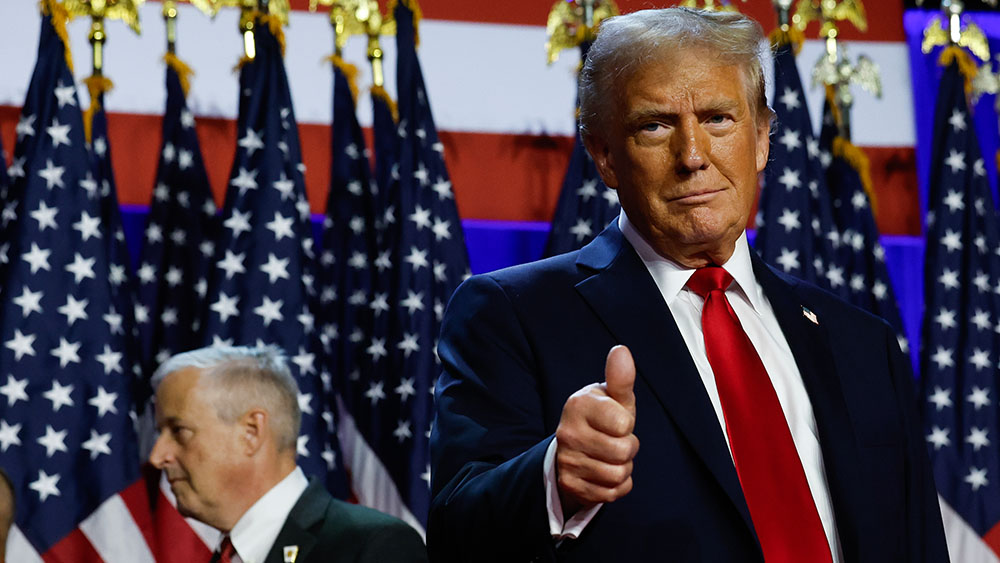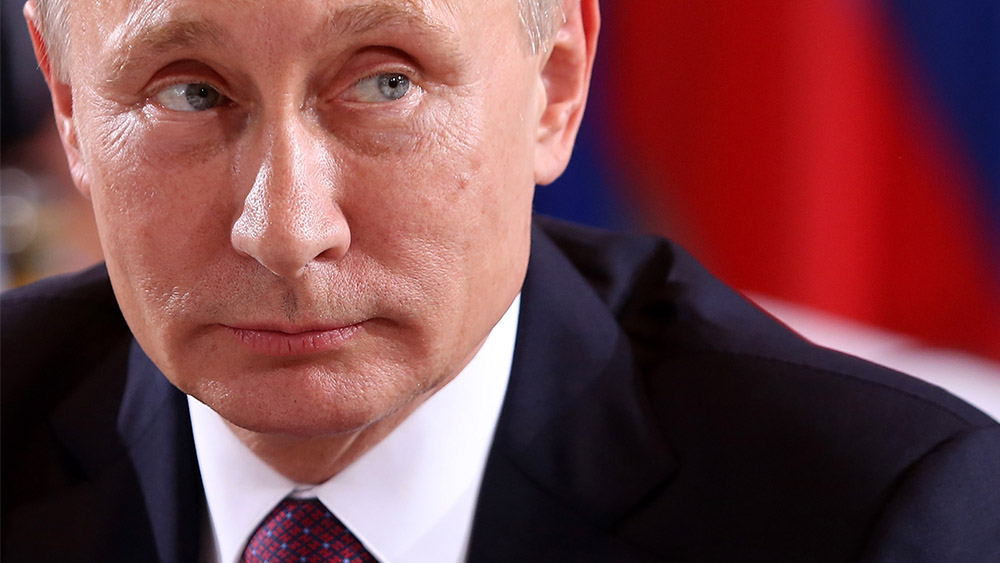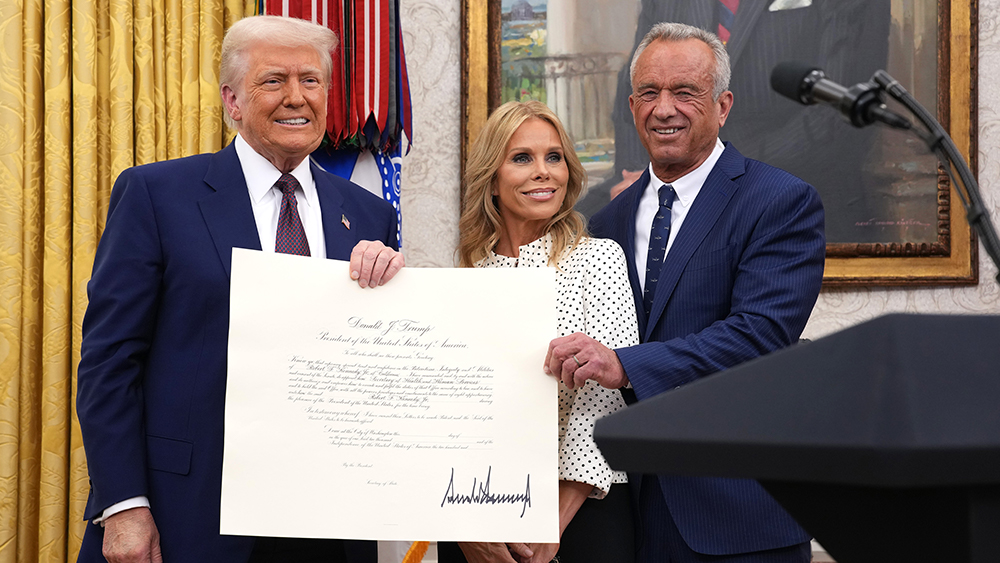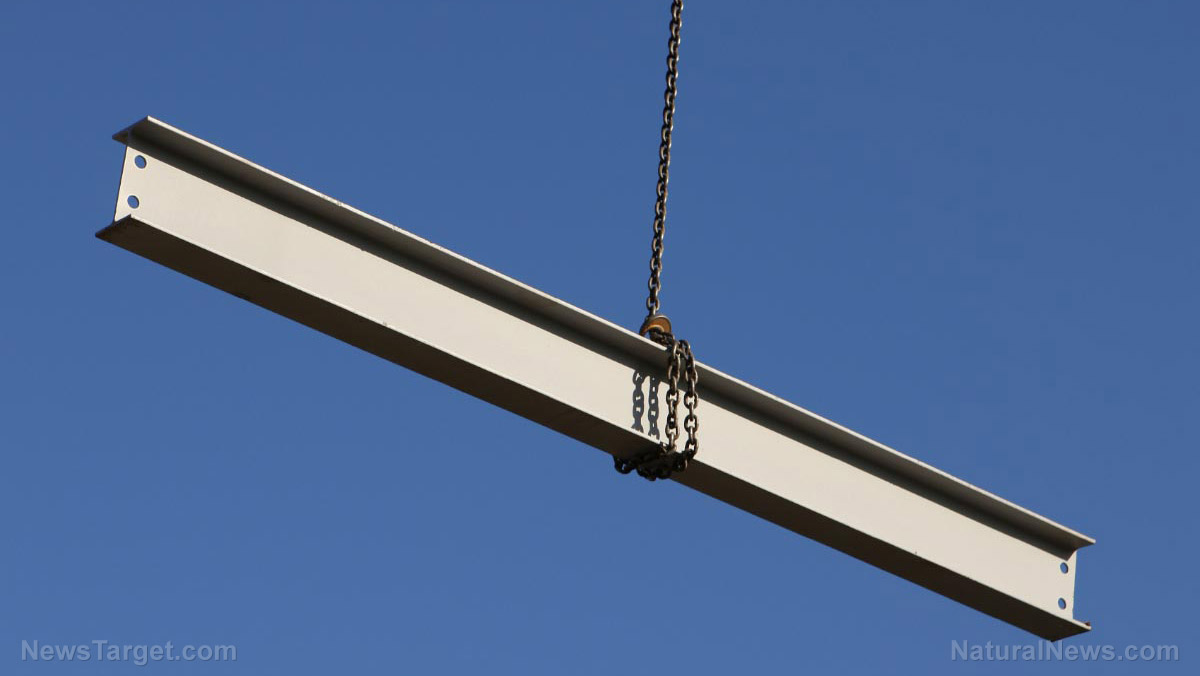 Parler
Parler Gab
Gab
- President Donald Trump claims $9 trillion in U.S. investments since his 2025 inauguration, citing “The Trump Effect,” but totals remain disputed.
- Major pledges include Apple’s $500 billion in manufacturing and NVIDIA’s $500 billion in AI infrastructure, alongside foreign nations like UAE’s $1.4 trillion vow.
- CBS News finds discrepancies, noting projects announced under Biden and vague timelines, casting doubt on the $9 trillion figure.
- Experts caution investments may reflect company-driven PR rather than direct policy impacts, with outcomes tied to prior incentives like the CHIPS Act.
- The debate centers on economic accountability and whether these pledges address supply chain weaknesses amid partisan rhetoric.
The White House’s bold list: A “revolution” in investment?
The now infamous May 16 White House press release painted a triumphant vision: $9 trillion in new U.S. investments, including commitments from 66 major companies and multiple foreign governments. Flagship pledges include NVIDIA’s $500 billion AI infrastructure pledge, Johnson & Johnson’s $55 billion in health care and Hyundai’s 21B steel plant in Louisiana. Foreign allies like the UAE and Japan have also pledged trillions, vowing to retool U.S. supply chains and tech leadership. “We’re witnessing a rebirth of American manufacturing and innovation,” Trump insisted during a May NBC interview. “No other administration has ever seen this.” Yet the administration’s math faces scrutiny. CBS News examined the list and found that private-sector commitments totaled closer to $2 trillion — excluding over $4 trillion in unverified pledges from foreign states like Saudi Arabia and Qatar, which the White House says are excluded from the core tally.Breaking down the discrepancies
The Corning controversy epitomizes the confusion. The glass manufacturer’s $1.5 billion Michigan solar investment was touted as purely “Trump−made,” yet $900 million of it originated from before his January 2025 inauguration. “We’ve been expanding under Biden’s policies too,” a Corning spokesperson admitted. Similarly, Project Stargate, a $500B BAI initiative with Soft Bank and Open AI, was initially proposed in 2024 — a fact the White House did not dispute. Even Apple’s $500B pledge includes reviving stalled projects from Biden’s era, such as North Carolina facilities paused over environmental disputes. Nick Nigro, a clean energy policy analyst, noted this pattern: “Companies often announce windfalls to signal loyalty to new leadership. It’s chicken-and-egg: Will these dollars flow purely because of Trump? Or because of Biden’s CHIPS Act or Inflation Reduction Act policies?”The shadow of Biden’s legacy: Lawmaking vs. rhetoric
The White House compares Trump’s claims to Biden’s four-year record, dubbing its own two-month tally “more in two months than Biden did in four.” But Biden’s 2023 “Investing in America” report counted $1 trillion in concrete projects — like TSMC’s $100B chip factory — a number not included in Trump’s private-sector list. Trump’s foreign investment claims also leverage Biden’s groundwork. The UAE’s $1.4 trillion pledge, for instance, stems from 2023 trade agreements and green infrastructure frameworks championed by Biden’s climate team. “This is inter-administration exaggeration,” said a Democratic economist, adding that bipartisan legislation like the CHIPS Act had already “primed the pipeline.”Can trillion-dollar promises build jobs and security?
As debates over numbers rage, the real test lies ahead: Do these pledges spur tangible economic revivals, create jobs and shield the U.S. from supply-chain shocks? Critics warn that headline figures hide risks. The $100 billion injected by Soft Bank’s Masayoshi Son into U.S. tech reflects a $100 billion reduction in his firm’s global investments elsewhere — a zero-sum move under pressure from Asian lawmakers. For now, the administration frames the $9 trillion as evidence of its “America First” success. Yet until billions flow to factories, engineers and workers — not merely press releases — that exact number remains up for grabs. As Nigro concluded, “Real change takes years. It’s too soon to blame — or celebrate — anyone’s policies yet.” Sources for this article include: JustTheNews.com CBSNews.com WhiteHouse.govTrump reveals Putin warned of imminent retaliation against Ukraine in 75-minute call
By Cassie B. // Share
MAHA movement faces uphill battle as Trump administration wages war on organic agriculture
By News Editors // Share
Trump’s foreign policy purge strikes key pro-Israel allies, deepening tensions
By Willow Tohi // Share
Trump’s 50% tariffs on steel and aluminum imports take effect
By Ramon Tomey // Share
Musk’s fiery rebuke highlights fiscal divide over Trump’s $4T debt bill
By Willow Tohi // Share
Governments continue to obscure COVID-19 vaccine data amid rising concerns over excess deaths
By patricklewis // Share
Tech giant Microsoft backs EXTINCTION with its support of carbon capture programs
By ramontomeydw // Share
Germany to resume arms exports to Israel despite repeated ceasefire violations
By isabelle // Share










